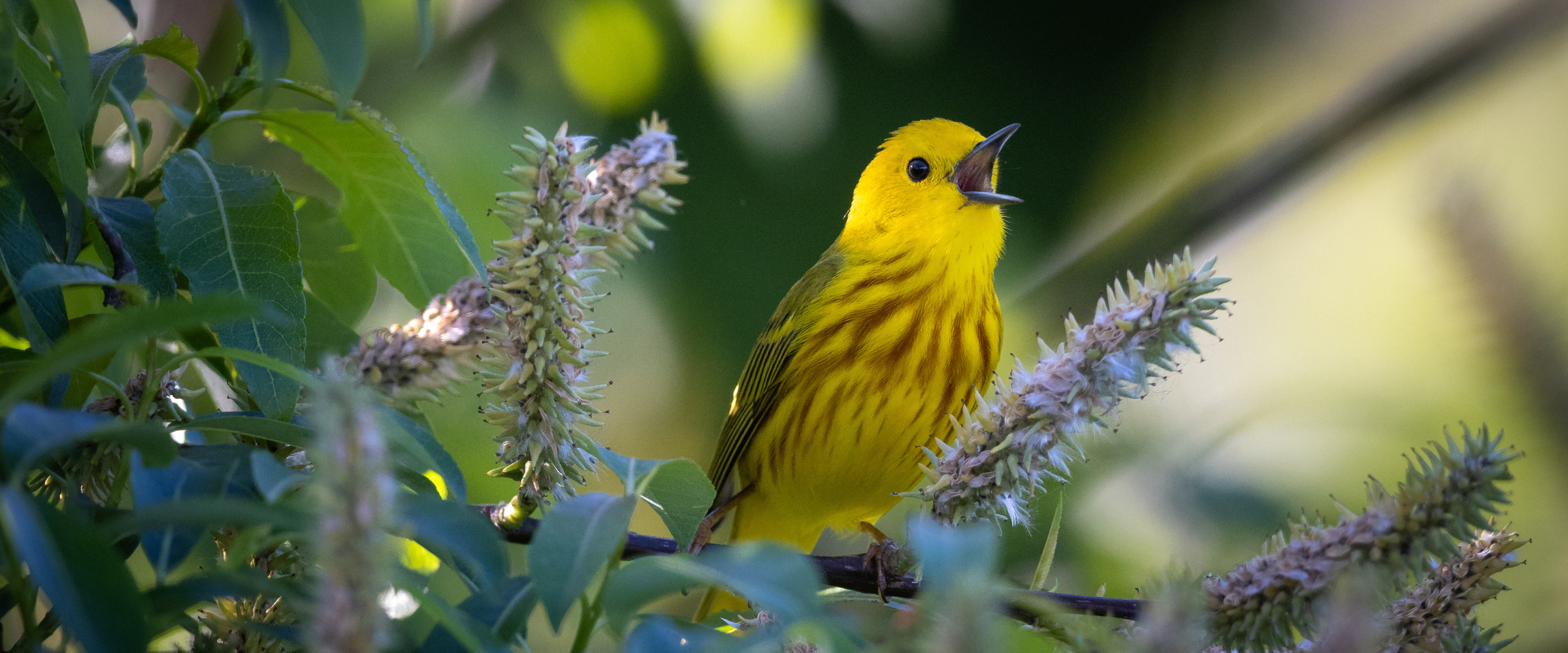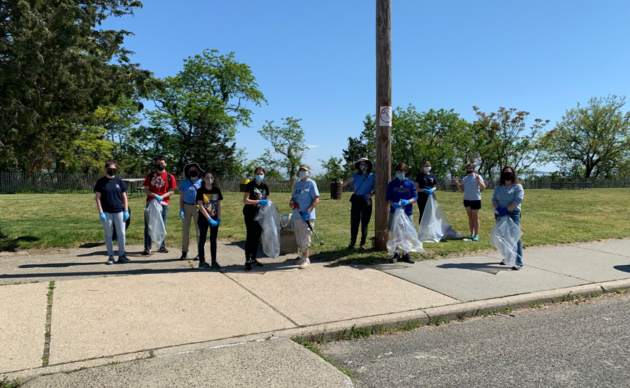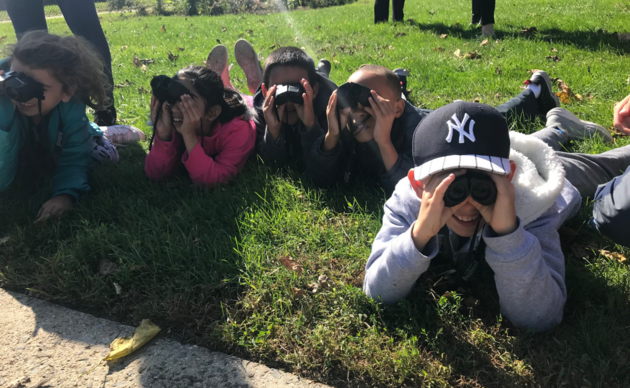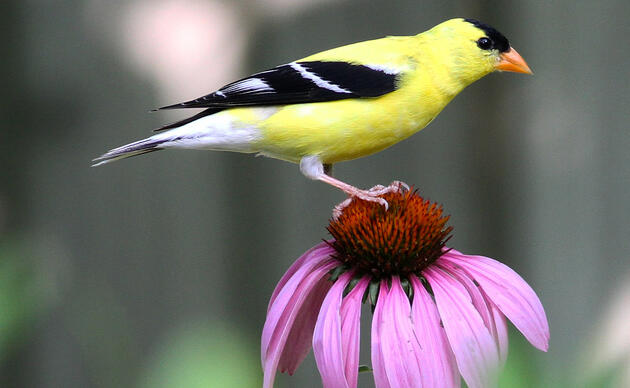Homeowners and property owners—scroll down to find our list of HELP-endorsed landscapers to help you design, create, and maintain ecologically-functional landscapes.
The Theodore Roosevelt Sanctuary and Audubon Center is excited to offer HELP: Habitat and Ecosystems Land Pro, a comprehensive professional educational program to assist landscape and horticultural professionals in creating ecological landscapes, using sustainable landscape practices, and creating natural climate solutions.
Ecological landscaping makes it possible to create rich habitats in a variety of spaces that support birds and other wildlife. It also improves functionality in our ecosystem services and is highly sustainable. This course will teach landscaping professionals the skills, strategies, and tools necessary to create habitat, as well as how to advertise, leverage, and monetize these highly-desired services.
Winter 2025 Program
The HELP: Habitat and Ecosystems Land Pro program takes place over three classes, totaling up to 15 hours. Registrants must attend all three classes to complete the course.
January: Thursdays
- January 16, 8:15 AM – 1:45 PM (Hybrid via Zoom or in person)
- January 23, 8:15 AM – 1:30 PM (Hybrid via Zoom or in person)
- January 30, 8:15 AM - 1:30 PM (In person only)
The cost of this program is $275 per person. For more information or to register, contact Joy Cirigliano at joyann.cirigliano@audubon.org.
This program will cover:
- Native plants and ecosystems services, with site-specific cultural needs for our local native plants
- How to create functional ecosystems in the managed landscape, known as reclamation ecology
- Targeted pest management with organic principles
- Ecological and habitat services design principles
- Natural climate solutions
- How to incentivize and monetize the ecological landscaping and land management model
Who the program is for:
- Horticultural or Nursery Professional interested in learning in depth about native plants, ecological landscape practices, and sustainable horticulture.
- Landscape Professional or Landscape Architect with clients requesting native plantings, habitat gardens, chemical-free organic pest management, and more sustainable practices on their properties.
- Parks / Municipality / D.O.T. Supervisor or employee who would like to gain extensive knowledge about which native trees and plants work best in specific situations.
- Landscape Design/Install company interested in expanding your client base through native plant installations and ecological land practices.
Benefits of HELP:
- A broader knowledge of ecological landscaping principles to address increasing requests for aesthetically pleasing native plantings and pet/child safe maintenance practices.
- Leads to clients from:
- Being added to the National Audubon Society's Plants for Birds Database under endorsed ecoscaper listings
- Ecoscaper requests resulting from Theodore Roosevelt Sanctuary community conservation-related public programming
- On-site visitor requests for landscape professionals capable of creating native gardens similar to the ones found at the Sanctuary.
- Professional CE credits:
- CNLP: 12 professional CE credits
- LA CES HSW: 12 professional CE credits
- ISA: 10 professional CE credits
- To receive endorsed status, individuals will need to complete the course, pass the module quizzes, and conceptualize a way in which they will apply the material covered in the class, applying a minimum of five key principles into the project. There is a 30-day review process for final project submissions.
To maintain endorsed status, metrics will need to be collected periodically to show the impact of the program on best practices. Additionally, 6 Theodore Roosevelt Sanctuary-approved ecological CE credits will be required every 2 years.
For more information or to register for a program, contact Joy Cirigliano at joyann.cirigliano@audubon.org.
Endorsed Eco-scapers
List updated as of 8/8/2024
Luke Barclay | LRB Landscape Design (NY)
- Site visits, consultations, landscape design
- Contact: (914) 713-7912| Website
CeCe Haydock (NY)
- Native plant and landscape architectural design
- Contact: (516) 551-5838 | Website
Dean Janulis | Design Ecosystems (NJ)
- Landscape design, conceptual drawings through installation management
- Contact: (973) 270-7847 | Website
Anthony Marinello | Dropseed Native Landscapes (NY)
- Native plant nursery, garden design, landscape consultations
- Contact: (516) 524-8711 | Website
Karen Marks | The Compleat Garden, LLC (NY)
- Garden design and installation
- Contact: (516) 661-7714 | Website
Jeanine Miedzwiecki | Montauk Garden Center (NY)
- Site assessment, garden installations, garden maintenance
- Contact: (516) 449-3582
Jessica O'Callahan | Renewed Ground (NY)
- Ecological design, site consultations, tree health and identification
- Contact: (516) 426-2203 | Website
Beth Romaker | Meadowscapes (CT)
- Meadow installations, garden design and install, bioswales, hardscaping
- Contact: (860) 672-8786 | Website
Kimberly Simmen | KMS Native Plants (NY)
- Retail and wholesale native plant nursery
- Contact: (631) 848-2178 | Website
How you can help, right now
Lend a Hand
There are many great ways you can get involved with Theodore Roosevelt Sanctuary and Audubon Center and make a difference for both the wildlife and the people who call Long Island home.
Support Our Work
Through land stewardship, science, education, and advocacy, we work to preserve habitat and protect bird species that are of state, national, and global concern. Your gift makes a difference.
Plants for Birds
Looking to spruce up your landscape and help the environment at the same time? Check out Plants for Birds—Audubon's searchable database for the best native plants to grow in your area.




